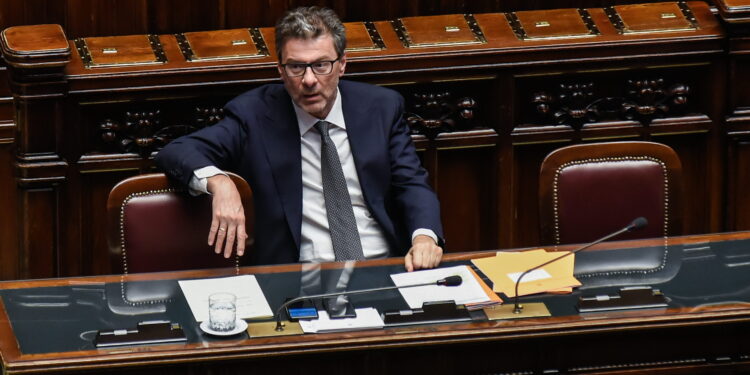Brussels – It is now official: Italy will submit its structural budget plan (SBP) to Brussels later than the deadline set by the European Commission for September 20. To draw up the document, which details the public spending plan for 2024–2028, Economy and Finance Minister Giancarlo Giorgetti wants to wait for ISTAT’s review of public accounts, expected on the 23rd of the same month. And that could significantly change the government’s outlook in light of the budget correction commitment made with Europe.
The plan is one of the innovations introduced by the Stability and Growth Pact (SGP) reform, which left the parameters on the deficit/GDP and debt/GDP ratios unchanged (at 3 and 60 per cent, respectively) but introduced greater flexibility in terms of the implementation of pathways for complying. Thus, each member state must deliver its reduction plan to the Commission during a four-year consolidation period extendable up to seven, subject to the chancelleries’ elaboration of a reform and investment plan to improve growth potential in a few specific areas that track common EU priorities (e.g., green transition, digitalization, energy security, and strengthening competitiveness).
Thursday (September 12), the Ministry of Finances communicated that it would “transmit the plan to the Houses of Parliament immediately after the update of ISTAT data on September 23, as per the determinations of the House and Senate leaders.” The SBP guidelines—expected to lead Italy to reduce its debt by 1 per cent each year—were discussed at a majority summit in the morning and will make another pass at the Council of Ministers scheduled for Tuesday (September 17). This will cause the deadline of September 20 to be exceeded, with the presentation of Italy’s SBP most likely slipping to October.
The Italian government says it informed the EU Commission of the decision on time, but the EU executive keeps to itself for now. “We have no comment to make,” was the response of Economy spokeswoman Veerle Nuyts to reporters’ questions, confirming that “some states have notified their intention to submit the plan after September 20,” but without mentioning which ones “since it is a procedure that is up to the states to initiate,” and specifying that it is the chancelleries that decide whether to request the extension public. “The process of requesting an exemption,” she continued, “provides that states can agree with the Commission to extend the deadline for a reasonable amount of time.”
Given the magnitude of Italy’s public debt—which, at 137.7 per cent of GDP, was the second highest in the eurozone in the first quarter of 2024 (after Greece’s, at 159.8 per cent)—it is only natural that Rome is under special observation by Brussels, that last July also started an excessive deficit procedure against it (along with Belgium, France, Malta, Poland, Slovakia, and Hungary).
A confirmation came, however, from the Commission’s deputy chief spokesperson, Arianna Podestà, on the fact that at the Eurogroup scheduled in Budapest for Friday and Saturday (Sept. 13–14) the College “will be represented at the administrative level” rather than by Commissioners Paolo Gentiloni and Valdis Dombrovskis, holders of Economy and Trade respectively, again as boycott form by the EU executive of the Hungarian Council presidency following the disruptive “diplomatic” initiatives of Magyar Prime Minister Viktor Orbán.
English version by the Translation Service of Withub
![Il ministro dell'Economia, Giancarlo Giorgetti, ai lavori dell'Ecofin [Bruxelles, 16 luglio 2024. Foto: European Council]](https://www.eunews.it/wp-content/uploads/2024/07/giorgetti-240716-350x250.jpg)



![Una donna controlla le informazioni sul cibo specificate sulla confezione [foto: archivio]](https://www.eunews.it/wp-content/uploads/2014/12/Etichette-alimentari.jpg)

